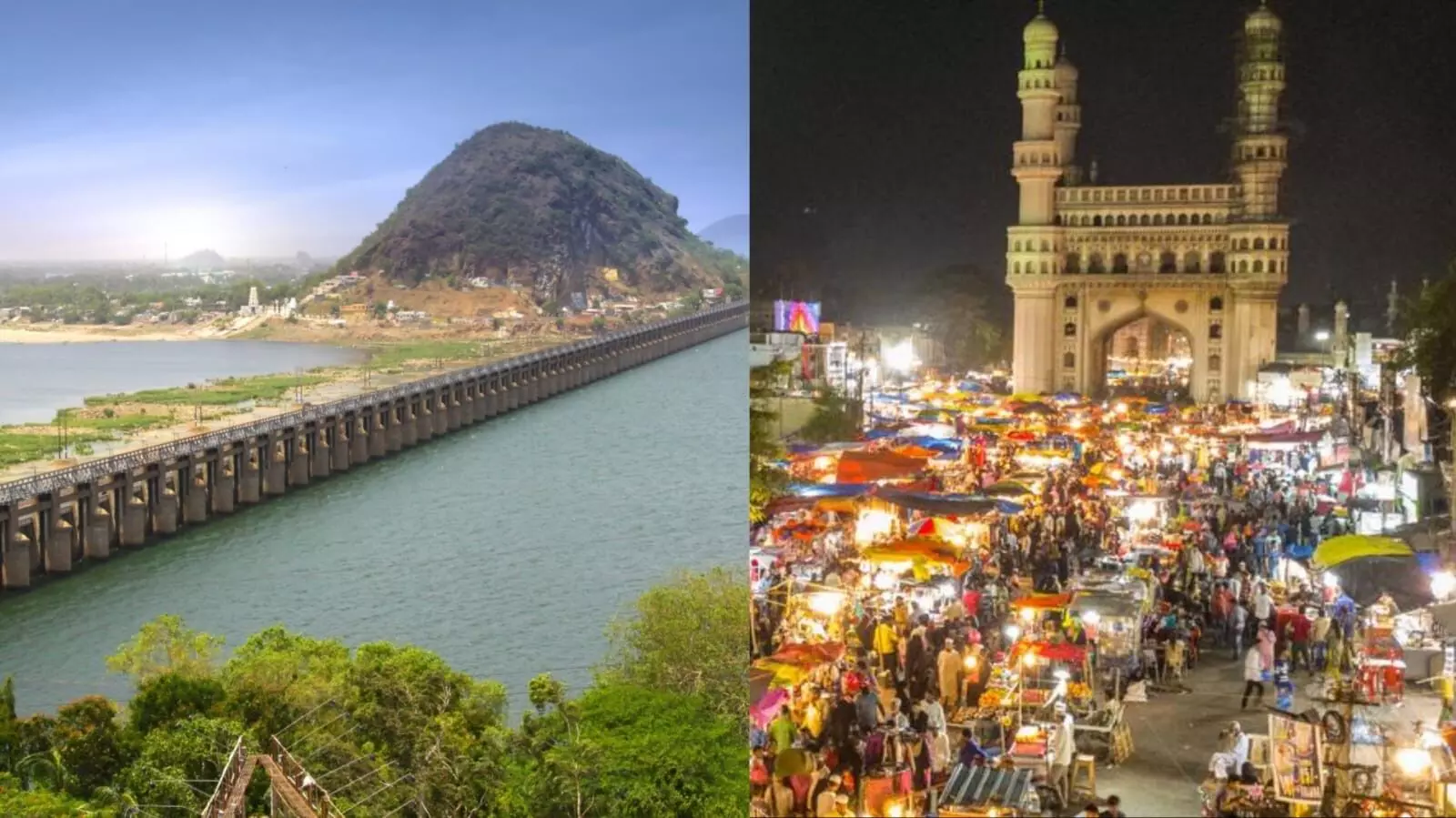Air quality improves: Vijayawada, Hyderabad see 30-40% drop in PM10 levels
Key activities included paving roads, promoting mechanical sweeping, bioremediation of legacy waste, solid waste management
By Newsmeter Network
New Delhi: Vijayawada is among the 14 cities that reduced PM10 (particulate matter) pollution by 30-40 per cent, compared to 2017-18 levels, while Hyderabad is among the 16 cities to see a 20-30 per cent reduction in PM10 levels.
Surat ranked first among Indian cities for air quality improvements, followed by Jabalpur and Agra.
Improvement in the quality of air
According to the data by the Central Pollution Control Board (CPCB), 95 of the 131 cities covered under the National Clean Air Programme have shown an improvement in air quality, with 21 reducing PM10 pollution by more than 40 per cent compared to 2017-18 levels.
The CPCB data shows that only 18 of the 131 National Clean Air Programme (NCAP) cities adhered to the National Ambient Air Quality Standards (NAAQS) for PM10, set at 60 micrograms per cubic metre.
40% reduction across multiple cities
The 21 cities and urban agglomerations that achieved more than 40 per cent reduction in PM10 pollution are Varanasi, Dhanbad, Byrnihat, Bareilly, Firozabad, Dehradun, Tuticorin, Nalagarh, Moradabad, Khurja, Trichy, Kohima, Lucknow, Kanpur, Kadapa, Sivasagar, Sunder Nagar, Agra, Greater Mumbai, Rishikesh and Parwanoo.
30% reduction in 14 cities
Fourteen cities – Ahmedabad, Ghaziabad, Rajkot, Jalandhar, Raebareli, Amritsar, Kolkata, Jammu, Silchar, Vijayawada, Naya Nangal, Dimapur, Baddi and Jodhpur – reduced PM10 pollution by 30-40 per cent, compared to 2017-18 levels.
20% reduction in air pollution
Khanna, Durgapur, Kurnool, Dera Baba Nanak, Vadodara, Allahabad, Asansol, Hyderabad, Gorakhpur, Ranchi, Bengaluru, Akola, Ananthapur, Durg Bhilainagar, Surat and Noida recorded a 20-30 per cent reduction in PM10 levels during the same period, the data showed.
10% reduction in Delhi, Nellore, Rajahmundry
A 10-20 per cent reduction in PM10 pollution was recorded in 21 cities – Delhi, Howrah, Thane, Latur, Nellore, Gajraula, Alwar, Chittur, Kala Amb, Mandi Gobindgarh, Amravati, Patiala, Jaipur, Ongole, Chandrapur, Nashik, Jhansi, Sangli, Kota, Devanagere and Rajahmundry.
India launched the NCAP in 2019 with a target to reduce particulate pollution by 20-30 per cent by 2024, using 2017 as the base year.
The target was later revised to a 40 per cent reduction by 2026, using 2019-20 as the base year. In practice, only PM10 concentration is being considered for performance assessment.
Best cities
The Union environment ministry presented the National Clean Air City Awards during the Swachh Vayu Survekshan-2024, held at a national workshop celebrating the International Day of Clean Air for Blue Skies in Jaipur.
While Surat, Jabalpur and Agra secured the top three positions among cities with populations of more than 10 lakhs, Firozabad (Uttar Pradesh), Amravati (Maharashtra) and Jhansi (Uttar Pradesh) were recognised as the best among cities with populations between three and 10 lakhs.
Raebareli (Uttar Pradesh), Nalgonda (Telangana) and Nalagarh (Himachal Pradesh) topped the list among cities with populations under three lakh.
Swachh Vayu Survekshan is an initiative by the environment ministry to rank cities based on the implementation of activities approved under the city action plan and air quality in cities covered under NCAP. These cities were awarded for significant improvements in air quality through various best practices to reduce air pollution.
Key activities included paving roads, promoting mechanical sweeping, bioremediation of legacy waste, solid waste management, converting reclaimed land from dump sites into green spaces, greenbelt development, intelligent traffic management systems and Miyawaki afforestation.
Inputs from PTI.